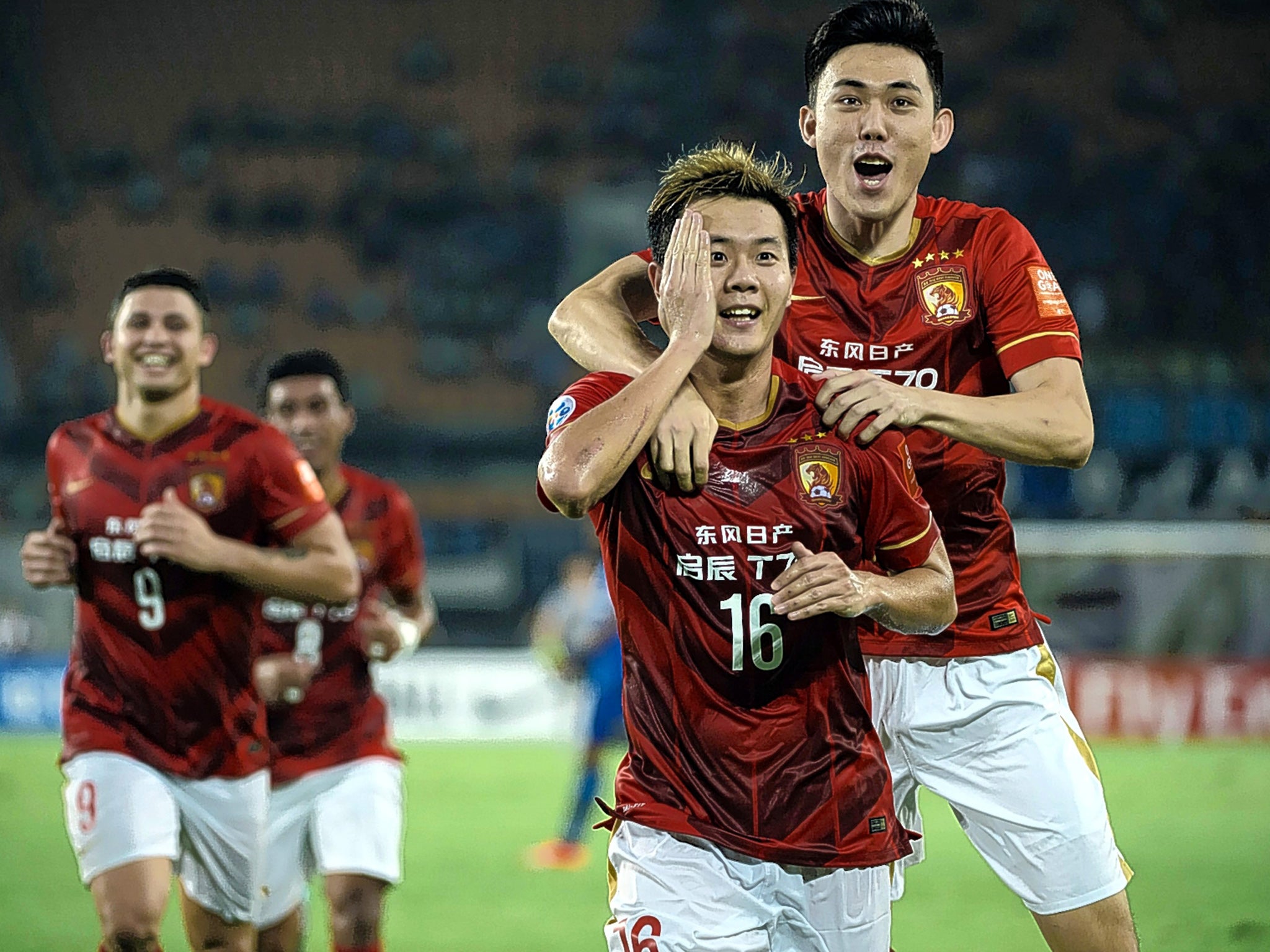The Club World Cup provides the stage to show off China’s football revolution
THE WEEKEND DOSSIER

In a galaxy far, far away… Actually the Club World Cup is being played in Japan, a mere 11 hours and 40 minutes flight away, but as far as the UK is concerned it may as well be on Tatooine.
This is theoretically the globe’s most important club competition, a showdown between the winners of each regional confederation’s Champions League. However, even when an English team has qualified interest is limited. When, as has been the case in six of the last seven stagings, there is no domestic involvement the tournament’s profile is on a par with the Ryman League (results in the small print).
It is not just the time difference, the tournament was ignored when hosted by Morocco. Nor, these days, is insularity such an issue with UK fans and media. Perhaps the indifference is because the competition seems concocted by Fifa, and is not very competitive. For European clubs the hard part is qualifying. In all 10 years of the current format Europe’s representative has reached the final, and only once in the last eight have they not won it (when Chelsea lost to Corinthians, of Brazil, in 2012).
However, the tournament is worth keeping an eye on as illustrates the shifting tectonic plates of world club football. At the moment it reflects European hegemony, but it may soon begin to showcase the rising influence of China. Encouraged by President Xi Jinping this vast nation is beginning to flex its growing economic muscle in football. Earlier this year Wang Jianlin, China’s richest man, bought a $52m, 20 per cent stake in Atletico Madrid, and a majority share in Infront, a marketing company that owns World Cup TV rights.
This month China Media Capital took a £265m slice of Manchester City, and this week Wayne Rooney was reportedly offered £25m a year to play in the Chinese Super League, probably for the club managed by Sven Goran Eriksson, Shanghai SIPG.
SIPG, which stands for “Shanghai International Port Group”, are not in Japan for the Club World Cup, China are represented by Guangzhou Evergrande Taobao, co-owned by two of China’s biggest companies, who last month secured their fifth successive CSL title and second Asian Champions League. They make their bow tomorrow in the quarter-final against Mexico’s America. The winner will play Barcelona with the final, probably against River Plate, on Sunday.
A match with Barcelona would be the most glamourous club game in Chinese football history, attracting huge viewing figures. Guangzhou have Luiz Felipe Scolari as manager, and a clutch of Brazil internationals including Robinho, once of Santos, Real Madrid, Manchester City and Milan, and former Tottenham midfielder Paulinho, in the team. They would not expect to beat Barcelona, but meeting them as peers would highlight how far Chinese football has come.
Despite some evidence football was invented in China the world’s most populous nation was late falling in love with the world’s most popular game. They did not enter the World Cup until 1958. They then withdrew from Fifa, not returning until 1979 following Chairman Mao’s death and the end of the Cultural Revolution.
Progress since has been slow. Table tennis and badminton were far more popular among the public and officialdom placed a greater emphasis on sports that provide Olympic medals in bulk (football requires many players, but counts as one medal). At international level China finally reached the World Cup in 2002, but lost every match. They have not qualified since and are unlikely to make 2018. Now coached by former Portsmouth manager Alain Perrin they could be knocked out as soon as March 2016 after being held 0-0 home and away by Hong Kong.
The picture was equally gloomy at club level until 2010 when a ruthless clean-up tackled widespread corruption and match-fixing. One of the teams compulsorily relegated was the main club in the city of Guangzhou (the nearest mainland city to Hong Kong). The club was then bought by Evergrande, a real estate company now diversifying. They made a series of signings including the statement acquisition of Chinese captain Zheng Zhi, previously of Charlton and Celtic. Evergrande won immediate promotion and followed up with the CSL title. Italian World Cup-winning manager Marcello Lippi was hired as manager, and delivered the Asian Champions League.
Crowds, barely 20,000 prior to the takeover, now average 45,000. CSL gates in general have more than doubled from averaging below 11,000 in 2004 to more than 22,000 this year. As well as Robinho a host of other ‘names’ are playing in the CSL including Asamoah Gyan, Eidur Gudjohnsen, Tim Cahill and Demba Ba.
The age and status profile of these players is similar to the foreigners attracted by Major League Soccer in the US and a level up from other rivals in the chase for superannuated talent, India, Australia and the Gulf states. More significant is the number of players, such as Paulinho, who move while still in their mid-20s.
It takes money to attract elite players in their prime, especially to a country most are culturally unfamilar with, but money is not a problem in China, especially when there may be political advantages to investing it. The People’s Republic is finally embracing the people’s game and the effects could be far reaching.
Join our commenting forum
Join thought-provoking conversations, follow other Independent readers and see their replies
Comments